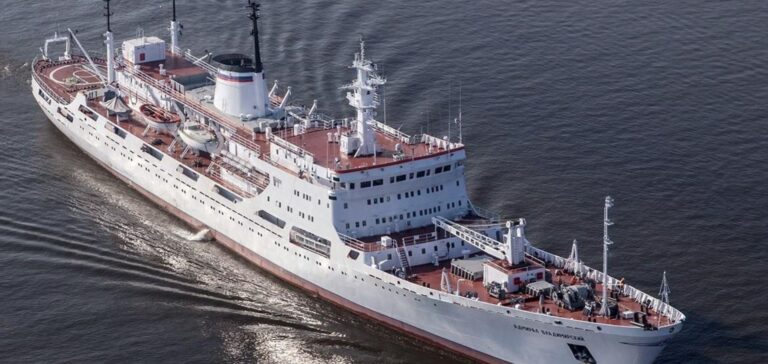Russian spy ships have been mapping offshore wind farms, gas pipelines, power interconnections and Internet cables in the waters around Denmark, Norway, Finland and Sweden, Danish public broadcaster DR reported April 19. DR and the Nordic broadcasters NRK of Norway, SVT of Sweden and Yle of Finland tracked messages from Russian ships in Nordic waters to Russian naval bases, in what the broadcasters say was a concerted information-gathering exercise in anticipation of possible sabotage attacks.
Intercepted radio communications showed that an oceanographic research vessel, the Admiral Vladimirsky, had been sailing around the Baltic Sea, the Great Belt, the Kattegat and the North Sea for a month, passing current and future offshore wind farms. In a written statement, the Russian ambassador to Norway, Teymuraz Ramishvili, told broadcasters that the work of the search vessels was conducted in full compliance with international law, coordinated through diplomatic channels.
Maritime security is strengthened
The Nordic investigation follows a report by the Dutch military intelligence service MIVD in February accusing Russia of planning to target Dutch maritime and energy infrastructure in the North Sea. After Russia’s invasion of Ukraine, Europe’s energy infrastructure is on high alert, with security heightened after a suspected sabotage attack on the Nord Stream pipelines in September 2022.
In March of this year, the European Commission and the High Representative adopted a joint communication on an enhanced EU maritime security strategy to protect the maritime domain against new threats. Although responsibility for the security of critical infrastructure rests with member states, the European gas transmission association ENTSOG said it would continue to exchange relevant information with transmission system operators through the regional gas coordination system “and coordinate the activities of transmission system operators to be better prepared for any crisis.
Extensive network of assets
Both branches of the Nord Stream pipeline and one of the two branches of the Nord Stream 2 parallel link were hit by sabotage attacks in late September 2022 in Danish and Swedish waters. Initial investigations concluded that the explosions were the result of deliberate actions, but not who was responsible. The Baltic Pipe pipeline, which transports gas from Norway via Denmark to Poland, began operations in October 2022 before expanding to a capacity of 10 billion cubic meters/year the following month.
Norwegian gas, Europe’s main source of supply, is delivered via an extensive network of offshore pipelines linking the gas fields to processing plants and markets in the United Kingdom, France, Belgium, the Netherlands, Germany, Denmark and Poland. The Balticconnector offshore gas pipeline from Finland to Estonia began operations in 2020 and has been used primarily to send gas from Estonia to Finland. However, with the commissioning of a new LNG import terminal in Finland, the interconnector can also deliver gas to Estonia. As for wind power, there is less than 3 GW of operational offshore wind capacity in the Baltic Sea, mainly in Danish and German waters. Orsted, operator of five offshore wind farms in Danish waters and another five in German waters, said it never comments on its safety arrangements.






















